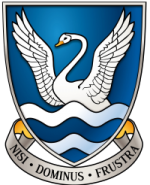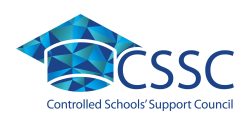 English
English
Aims
We aim to encourage students to:
- demonstrate skills in speaking, listening, reading and writing necessary to communicate with others confidently, effectively, precisely and appropriately;
- express themselves creatively and imaginatively;
- become critical readers of a range of texts, including multi-modal texts, prose, drama and poetry;
- use reading to develop their own skills as writers and to nurture a lifelong love of literature;
- understand and analyse the patterns, structures, conventions and impact of written and spoken English, selecting and adapting speech and writing to different situations and audiences;
- understand how spoken and written language relate to identity and cultural diversity;
- explore contexts and experience different times, cultures, viewpoints and situations in texts;
- connect ideas, themes and issues in a range of texts;
- carry out independent research and present personal responses in the form and language appropriate to literary study;
- develop advanced study skills that help them prepare for third level education.
Staffing
Mrs Graham (Head of Department)
Mrs Patterson (Deputy Head of Department)
Mrs Ace
Mrs Bannister
Mr Caddell
Miss Harkin
Mrs Hume
Mrs Lauder (KS3 Communication Co-ordinator)
Mr McMillan
Mrs Wotherspoon (Literacy Co-ordinator)
Subject Overview
At the three Key Stages we follow the aim of the N.I. Curriculum to empower young people to achieve their potential and to make informed and responsible decisions throughout their lives, as well as its objectives:
- to develop the young person as an individual;
- to develop the young person as a contributor to society;
- to develop the young person as a contributor to the economy and environment.
At Glenlola Collegiate School all pupils study English with Communication to KS3, this includes units of work focusing on the development of communication, literary and drama skills. At KS4 most pupils will then study English Language and English Literature at KS4, as two separate GCSE subjects. However, some pupils may be advised to study only English Language at GCSE, to strengthen their performance in this compulsory subject. Also at KS4 a popular, additional subject option which is offered by the Department is Drama. At AS and A2 the Department offers both English Literature and Theatre Studies. Please refer to the separate area for Drama/Theatre Studies on the school website.
Key Stage Three
At KS3 pupils develop their communication skills in reading, writing and talking and listening completing a variety of activities, including tracking assessments. Drama units are included in each year group and pupils study a variety of texts including poetry, prose, drama and media texts.
The school has also invested in the Accelerated Reader scheme, which is designed to build literacy skills in all Junior School pupils. In addition to having ten minutes independent reading time in class, they are encouraged to read independently for at least thirty minutes on a daily basis, to encourage the habit of reading and a love for literature. Each class also has a fortnightly library class with the opportunity to explore new Accelerated Reader texts, and to complete Accelerated Reader online quizzes, to encourage further reading.
Key Stage Four
English Language, English Literature and Drama are taught at GCSE level. Controlled Assessments are completed over the two year period in all of the subjects. Year 11 pupils are entered for Unit 1 external examinations at the end of the year in English Language and English Literature. The remaining Units are taken at the end of Year 12.
Click here to go to the CCEA Key Stage 4 Revised English Language Specification.
Click here to go to the CCEA Key Stage 4 Revised English Literature Specification.
Key Stage Five
English Literature and Theatre Studies are offered at AS and A2 Level. The English Literature course involves pupils engaging critically and creatively with a range of poetry, prose and drama texts. At A2 pupils complete Unit A2-3 which consists of coursework on prose texts. The development of independent reading, thinking and research skills form an essential part of the course. Pupils will be required to attend four A2 induction days, in the month of June, following the completion of their AS examinations in order to commence the A2 course and to begin their summer A2 required reading and research.
Click here to go to the CCEA Key Stage 5 Revised English Literature Specification.
In Theatre Studies, pupils complete coursework, practical work and an external examination. Please refer to the separate area for Drama/Theatre Studies on the school website.
Career Opportunities
An A Level in English Literature develops your skills in written and face-to-face communication, as well as your capacity for research and your ability to understand complex ideas and theories. With this set of skills, you could go into the media industry which includes print, online, TV and radio.
Journalism or publishing are other areas that an A Level in English Literature will allow you to access. For example, you could be an editorial assistant, proofreading and correcting books before they go to print. A job in advertising and PR is also available with a qualification in English Literature, such as a public relations officer or a press officer.
Teaching is another profession open to you, or you could work for an arts organisation, trying to secure funding or publishing material for a museum or a gallery. With further study, you could also go into sectors like law, business, social work or even politics which all require excellent communication skills.
A leaflet ‘Why Study English’ is available from The English Subject Centre at www.whystudyenglish.ac.uk.




